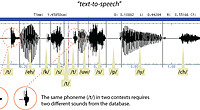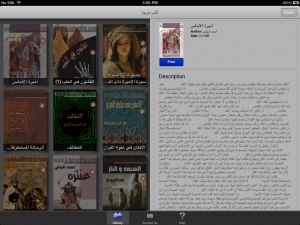While digital reading has become such a common part of the American landscape that consumers are now reading on a wide variety of portable devices, there are still portions of the reading world where digital publishing is not as accessible as the consumers hope. The frustration over lack of affordable technology and market saturation is only the beginning; the crux of the problem lies in lack of compatibility between the device and the characters on the screen.
The ePub3 standard that was adopted by the IDPF is supposed to address some of the unique issues facing right-to-left written languages, as well as the need for vertical text and very specialized letter characters, but for now, some companies are working to make foreign language ebooks available on a smaller scale.
According to an article by South Africa-based Snapplify, “The biggest obstacle thus far has been the incompatibility of their language and the technology used in the digital publishing process. Certain written texts flow from right to left, such as Hebrew and Arabic, which present layout and display problems – particularly with ePUB that features reflowable text. The digitisation of Arabic text was hindered by not being able to make use of OCR systems (text recognition systems) due to the complexity of the written language syntax. This was somewhat circumnavigated by making PDF’s of text, but thus limiting their distribution channels as the standard for many e-readers is ePUB with ePub being is one the most common formats for book publishers around the world.”
Originally developing apps for tablet devices, Snapplify has just announced its support for ePub with the hopes that this will increase the amount of content for underserved foreign reading markets. One of the first publishing clients to benefit from this support will be African publisher Kotobarabia, one of the most prolific publishers globally of Arabic ebooks.
“The market for the digital publishing of eBooks in foreign languages is far from saturated; there are still sectors in Europe, Africa, Asia and North America that are wholly unrepresented. Digital publishing service providers are few and far between that truly understand the complexity of the language and the obstacles that face foreign language publishers struggle with to get their content in the digital sphere to tap into the global market.”
Mercy Pilkington is a Senior Editor for Good e-Reader. She is also the CEO and founder of a hybrid publishing and consulting company.

